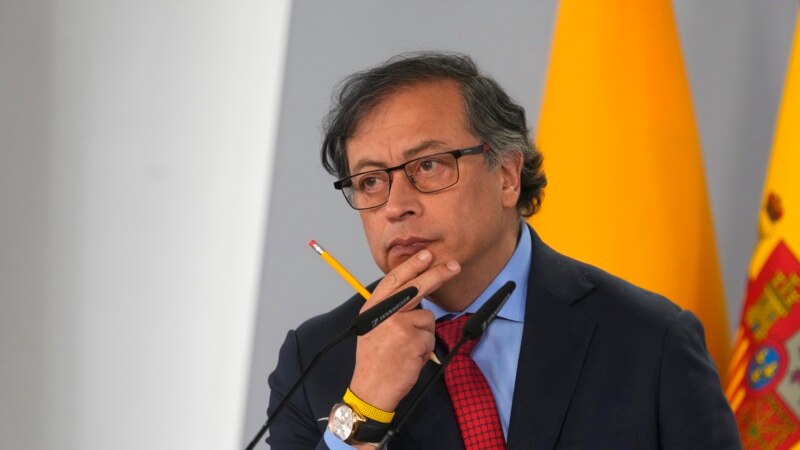
The President of Colombia, Gustavo Petro, and the Attorney General of the Nation, Francisco Barbosa, staged a new public confrontation on Friday, as a result of the accusations launched by the Head of State against a regional prosecutor for alleged ties to criminals.
The attorney general reacted to the criticism against the judicial server and the discussion with the president escalated. Petro addressed Barbosa from Spain on Friday: “The Prosecutor forgets one thing that the constitution orders: I am the head of state, therefore his head.”
The statement generated a quick response from the head of the Prosecutor’s Office, who accused Petro of approaching a dictatorial regime. “What Gustavo Petro has just done is to say that he is not the President of the Republic but a dictator in Colombia,” said Barbosa, who alleged that the statement affects the rule of law and is disrespectful of the independence of powers in the country. .
Added to this questioning was a pronouncement on Friday by the president of the Supreme Court of Justice, magistrate Fernando Castillo, also rejecting President Petro’s statement.
The Court pointed out to President Petro that he was making a wrong interpretation of the Colombian political constitution and considered that he is ignoring “the autonomy and judicial independence that is the founding clause of Colombian democracy.”
In mid-afternoon on Friday, Barbosa announced that he will take his family out of the country for security reasons. The official says that President Gustavo Petro’s statements put him at risk.
“I hold Gustavo Petro responsible for what could happen to me or my family, or that they could assassinate me in Colombia after these statements,” said the prosecutor, considering that “there will certainly be consequences” if he decides not to obey the president. Petro, who this morning said he was his boss.
President Petro responded via a long message on Twitter that the attorney general is disrespecting him and that he, as Head of State, has the right to ask about investigations and complaints that constitute a violation of International Humanitarian Law.
This new episode began with a tweet from President Petro, citing an article written by journalist Gonzalo Guillén, in which he mentioned that prosecutor Daniel Hernández would have “covered up” the murder of some 200 people at the hands of the criminal gang “Clan del Golfo”. ” on the north coast of Colombia.
The article states that the prosecutor Hernández would have received the lists of the people who were going to be executed and that the official waited for those homicides to take place and then protected the murderers. President Petro asked to investigate this information, considering it “very serious” and wrote a message on Twitter accompanied by a photograph in which the judicial official appeared with his 13-year-old son.
“The President of the Republic set the trill and accompanied the publication in which the youngest son of prosecutor Hernández is,” denounced Prosecutor Barbosa, who considers that in this way he placed “a tombstone on judicial officials.” In addition, he held the president responsible for what may happen to prosecutor Hernández and his family.
Barbosa also commented that prosecutor Hernández is a victim of the La Rochela massacre, committed by paramilitaries in 1989 and that “to tell a victim recognized by a sentence of the Inter-American Court of Human Rights that he is a defender of the paramilitaries is a very serious accusation”.
Prosecutor Barbosa and President Petro had already had other disagreements. The most remembered has to do with the harsh criticism launched at the time by the head of the prosecution body against President Petro’s “total peace” plan for the benefits that were proposed for criminals.
Barbosa took office in the Prosecutor’s Office in February 2020. He was elected by the Supreme Court of Justice, one of the high constitutional courts, from a shortlist presented by the then president of Colombia, Iván Duque. Before becoming attorney general, he had been a right-leaning government official at the time.
The clash of powers occurred one day after the Colombian justice had annulled the election of the president of Congress, Senator Roy Barreras, due to double political militancy. Barreras is considered a strategic bishop of the Gustavo Petro government in the Legislature and, if the decision is final after appeals, in the course of the next few weeks he would have to leave office in Congress.
Connect with the Voice of America! Subscribe to our channel Youtube and activate notifications, or follow us on social networks: Facebook, Twitter and instagram.




![[Img #74662]](https://thelatestnews.world/wp-content/uploads/2024/12/Organisms-with-the-shortest-life-150x150.jpg)









